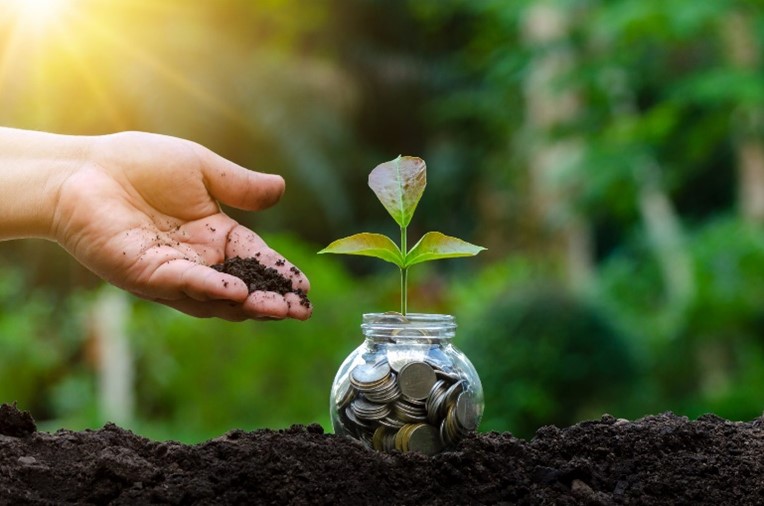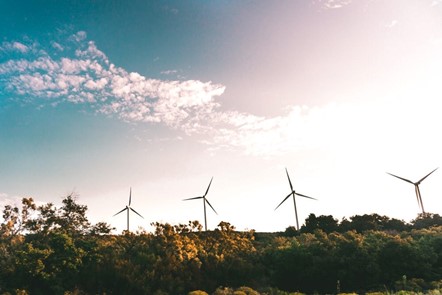In light of the Government’s recent announcement of the Green Jobs Taskforce, which aims to develop a long-term plan for securing the Green Skills needed for the low carbon future, we thought it would be useful to explain everything ‘Green’.
A year ago, as we settled into the first Covid-19 lockdown, we were able to catch a glimpse at what our cities could look like: the air was drastically cleaner, the roads quieter, days seemed brighter – in some places it really looked like nature was reclaiming the urban space. This came hot on the heels of the September 2019 Climate Strikes. While cities around the world came together to declare a climate emergency, this was also the year Donald Trump began withdrawing the US, the second largest global polluter, from the Paris Climate Agreement.
Coming out of the pandemic, we need to ask ourselves if we really want everything to go back to normal. There is so much potential for positive change – a ‘Green Recovery’ – which will put the country on track to meet its net zero 2050 goal and transition us into a ‘Green Economy’.
What is a Green Economy?
A Green Economy is one that capitalises on renewable sources of energy and low to zero-carbon production methods, as well as investing in climate change resilience strategies.
“The green economy is defined as one in which value and growth are maximised across the whole economy, while natural assets are managed sustainably. Such an economy would be supported and enabled by a thriving low carbon and environmental goods and services sector.” (Skills for a Green Economy)
The process of greening the economy creates a lot of opportunities for low-carbon sustainable industries to thrive, for example, green technology and renewable energy. Studies have shown that Green Economies will produce as many jobs as they will make redundant, but this will require a big drive to retrain workers in Green Skills. (World Employment Social Outlook 2018: Greening with Jobs)

What are Green Skills?
Green Skills are the increasingly in-demand skills related to the Green Economy and environmental sustainability. Even if you’re not looking to become a nuclear engineer or hydroelectric dam specialist, Generic Green Skills will be needed for most jobs and can help you stand out from the crowd in a saturated job market.
CEDEFOP defines Green Skills as:
“the knowledge, abilities, values and attitudes needed to live in, develop and support a sustainable and resource-efficient society”
In England, Green Skills have been classified as those relating to:
- resource efficiency
- low carbon industries
- climate resilience
- skills to manage natural assets
These sectors generally demand specific technical Green Skills that would be studied at a high level of education; however, there is more to Green Skills than just technical competencies. The Government has encouraged all business to start thinking about how they can become more sustainable and resource-efficient and the kind of skills that will be needed as they adapt to a greener future (Skills for a Green Economy).
“Green skills … will be needed by ‘all sectors and at all levels in the workforce’” (Green Economy Coalition, OECD Greener Skills and Jobs).
Generic Green Skills:
Margarita Pavlova, Associate Professor in the Department of International Education and Lifelong Learning at the Education University of Hong Kong, has identified three categories of generic green skills that generally correspond with common generic skills most employers look for:
- Cognitive Competencies – this refers to your environmental awareness and ability to apply resource efficiency and come up with innovative green solutions to problems.
- Interpersonal Skills – these relate to your ability to communicate and build relationships, so skills like communication, negotiation, and marketing are important here – how can you communicate with others to adopt your innovative green solutions, for example.
- Intrapersonal Competencies – these are your own personal capabilities such as adaptability and entrepreneurial skills – how well are you able to learn and work with green technologies and seize opportunities presented by them?

How can I develop my Generic Green Skills?
Hopefully, this has given you a good idea of what ‘Green Skills’ are and how they can be used to add something extra to your CV.
A good place to start thinking about developing your generic Green Skills is to think about what you have already done. Maybe you did something at school or university or work to improve resource efficiency or minimise waste? Some experiences you may already have on your CV could be reframed to emphasise your understanding of green practices.
Staples and Unison give some great tips on how to green your workspace here, and here. Treehugger gives some fantastic advice on how to incorporate sustainability into your daily routine here.
Getting involved with your Uni’s sustainability organisation can also be a great way to gain some insight and valuable experience. You could even run as your Uni’s Green/Sustainable Rep – and if your student union doesn’t have one, start a campaign to get one!
Lastly, a fairly obvious way to demonstrate your understanding of environmental issues is to volunteer with an environmental organisation. They may also provide information and resources for ‘greening’ your workplace, school, or university. Some might even offer internships and placements in your field, so it is worth having a look.
At Studenteer we are working to create more exciting projects with charities and good causes involved in environmental conservation and sustainability to give students more opportunities to ‘green’ their CVs and hone their Green Skills, while making the world a better place.
By Jordan Hawes for Studenteer
© All Rights Reserved, Studenteer 2021

